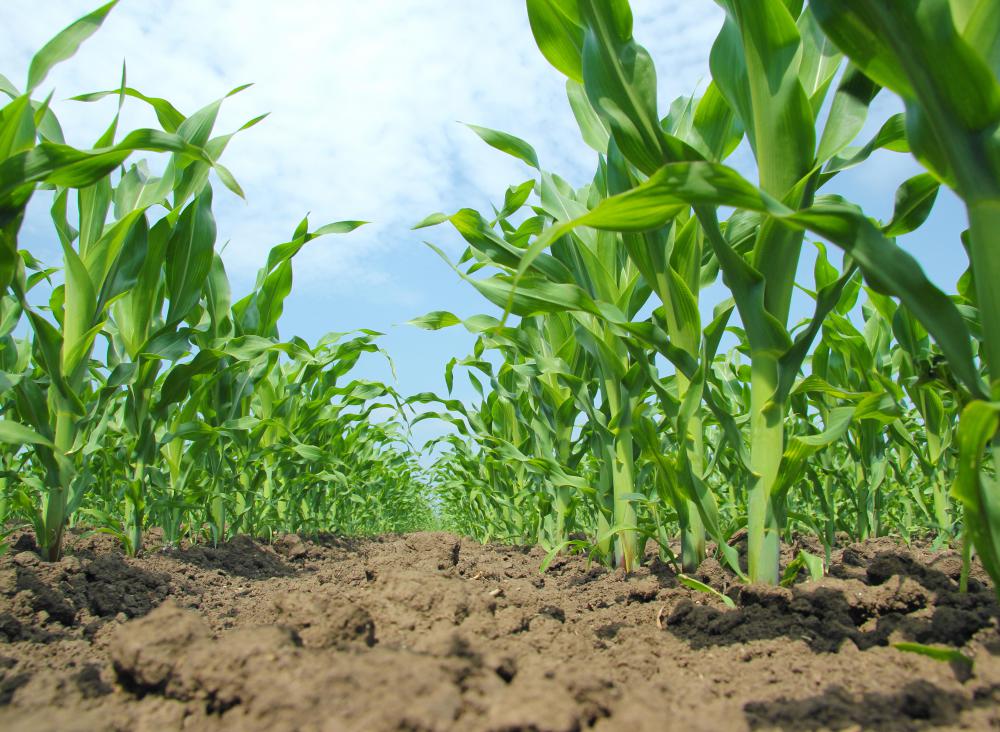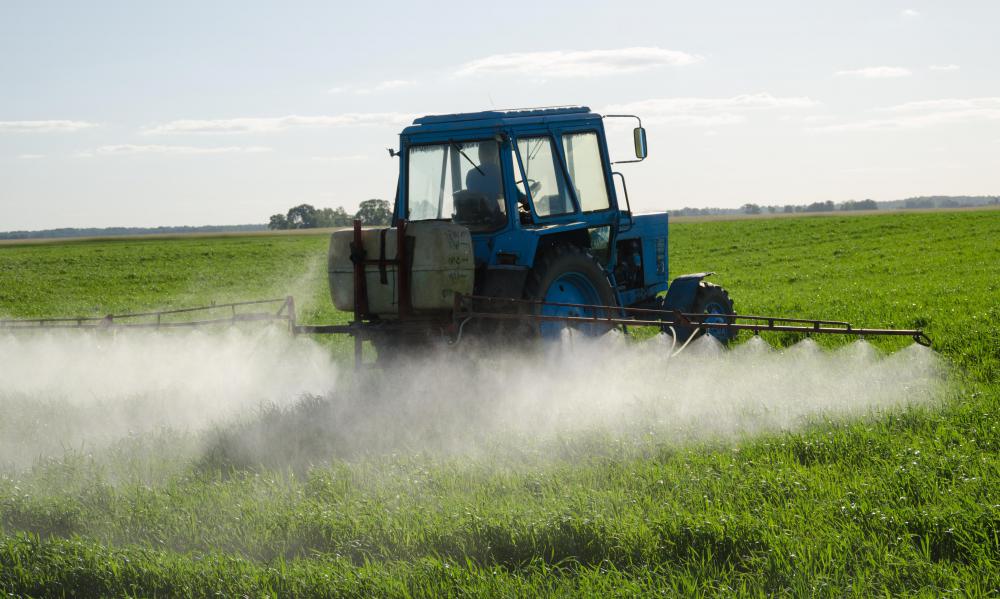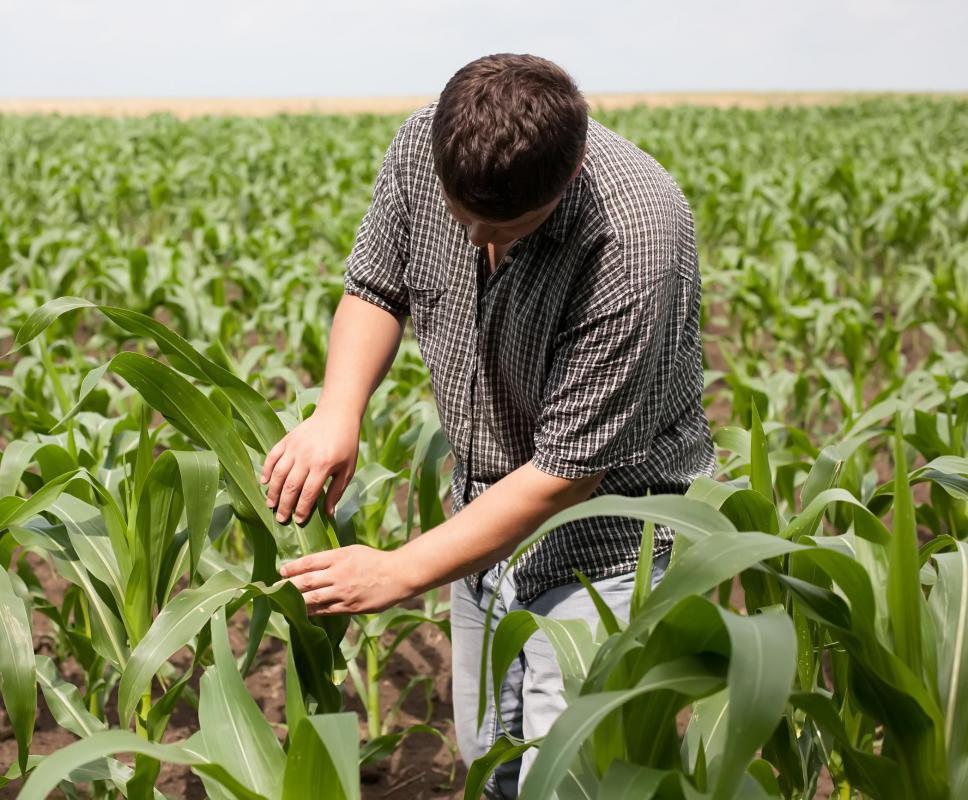At SmartCapitalMind, we're committed to delivering accurate, trustworthy information. Our expert-authored content is rigorously fact-checked and sourced from credible authorities. Discover how we uphold the highest standards in providing you with reliable knowledge.
What is an Agronomist?
It takes a team of people to get edible crops from the fields where they are grown all the way to the tables where they are eaten. One of the first people in this chain is an agronomist, sometimes called an agronomist engineer. Agronomists are in the business of understanding plants and their interactions with each other, the soil and the weather. An agronomist is, simply put, a plant growth and use specialist. Not only do agronomist jobs exist to provide food crops, but agronomists also work to find new uses for plants, such as fuel and fiber, or feed for animals.
A field agronomist can be found working closely with farmers to help them optimize their land for the maximum yield of crops, or arranging beneficial crops to grow together. An agronomist may also perform soil and water testing, and figure out the best way to farm with the least amount of environmental impact. An agronomist in the field might also work to figure out the best fertilizer for the type of soil an individual farmer is working with, as well as for the specific geographic area.

More commonly found, however, are research agronomists. A research agronomist may work with companies or government agencies on plant hybridization and soil conservation as well as the areas mentioned above. Agronomists who specialize in research might work to figure out which plants can be used as fuel, such as the discovery that corn can be used to fuel vehicles, or which plants might make effective pharmaceuticals. Agronomists may also work in the field of education, or may work with foreign governments in the their usual capacity.

In addition to their primary jobs, agronomist engineers can be employed in a number of other areas. An agronomist can be found working for agricultural and lawn supply stores. They also can be found as part of a meteorology team or as environmentalists.
The education required to become an agronomist varies by location, but the typical agronomist job requires a bachelor's degree or higher from an accredited agricultural college. The individual must also, in most cases, pass an exam to become a certified crop advisor. After attaining a degree, agronomist engineers almost always have to take continuing education courses to keep up with advances in research and technology.
AS FEATURED ON:
AS FEATURED ON:













Discussion Comments
A good agronomist is worth his or her weight in gold in agricultural areas. Those are the folks who can develop methods to make crops grow larger in various climates and conditions, find the most effective ways to raise feed corn (and other crops) and adapt crops for different uses.
Some smart youngsters looking for a growing field (pun intended) could do a lot worse than looking into agronomy as a career.
Post your comments